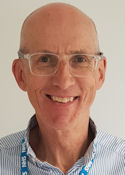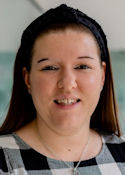Oxford Muscle Service
Welcome to Oxford Muscle Service.
Having an appointment with the Oxford Muscle Service
Bringing your child for an appointment with the Oxford Muscle Service
Bringing your child for an appointment with the Oxford Muscle Service
About us
We are a team of professionals with a specialist interest in neuromuscular disorders, providing holistic care for all patients affected by a neuromuscular condition.
Your consultant or GP has referred you or your child to us for an assessment and ongoing care because they suspect signs of a neuromuscular condition.
Overall care will be led by our team of Consultants. Our team also includes consultants in:
- Neurology
- Respiratory Medicine
- Orthopaedics
- Cardiology
as well as a Clinical Psychologist, Physiotherapists and Family Care Advisors.
We support patients and families living with neuromuscular conditions in the surrounding counties of Oxfordshire, including but not exclusively:
- Bedfordshire
- Buckinghamshire
- Northamptonshire
- Wiltshire.
As a tertiary care centre we also aim to provide specialist support to local medical and therapy teams caring for Neuromuscular patients.
In addition to a patient's medical needs, our one-stop, multi-professional follow-up clinics provide access to research studies and a team to support those patients and their families that are keen to know more about current clinical trials and new medications.
We are invested in training the next generation of Neuromuscular healthcare professionals. Please contact us for the opportunity of a student placement or work experience.
Neuromuscular disorders
Neuromuscular disorders are a broad range of conditions where the function of voluntary muscle and/or sensory nerve function is affected.
This is due to pathology in the peripheral nerves, neuromuscular junction or the muscle itself. Conditions involving the brain or spinal cord are not included in this group of conditions.
Neuromuscular conditions are genetic and caused by changes in the DNA. These DNA changes cause damage to the Neuromuscular system. This results in lack of muscle stimulation, muscle atrophy and weakness. The limb, trunk, heart and respiratory muscles can be affected. If the sensory nerves are also involved loss of sensation can occur.
Our clinics
Adults
Neurosciences Outpatients, Level 3 West Wing, John Radcliffe Hospital
Paediatrics
Children's Outpatients, LG1 Oxford Children's Hospital, John Radcliffe Hospital
How to find the John Radcliffe Hospital
What to bring
- A list of your/your child's current medication and any other correspondence you think could be relevant.
- If you are attending Paediatrics Clinic and your child is under two years old, it would be useful to bring their personal child health record ('red book').
- Any orthotics or respiratory equipment used regularly for therapists to review.
- Appropriate clothing to allow assessment e.g. loose fitting shorts/leggings and T-shirt.
- Your hoist sling if this is required for transfers.
Accessibility
Within Paediatric Outpatients there is an accessible toilet. We also have double wide plinths for ease of assessment and access to a hoist for transfers if this is needed. We have can weigh you in the hoist or on a weighing chair.
In Adult Neurosciences Outpatients there is an accessible toilet with a motorised toilet seat. There is also a higher chair in the waiting area for those who may find standing from a lower seat challenging. We have a hoist in clinic for transfers and can also weigh you in the hoist.
Your appointment
Doctors
You will see a Consultant (Paediatric/Adult Neurologist) with a specialist interest in neuromuscular conditions, but may also meet other members of the clinical team such as junior doctors.
Oxford University Hospitals is a teaching Trust, and a medical student may join the clinic, but only if you give your consent.
Your assessment will involve a discussion and a physical examination.We may also take blood and urine samples.
Specialist Physiotherapists
Our Specialist Physiotherapists may assess you alongside the Doctor if appropriate, or in a separate room.
The assessment may involve:
- a physical examination
- observing how certain movements are performed, including rolling, sitting, standing, walking or running.
- a respiratory test to record lung function
- questions about mobility, splints, therapy, leisure / sports and issues related to home, school or work.
The Physiotherapist will offer advice or treatment suggestions and liaise with your local Physiotherapist (if you have one) and other teams involved in your care.
Family Care Advisor
A Family Care Advisor may be present during your clinic appointment, but if you would like more time or privacy, we can arrange a follow-up phone call or review at a later date.
The Family Care Advisor can discuss a range of non-clinical issues, including:
- concerns you have following a diagnosis
- how to access other health and social care services
- talking to teachers/employers about your condition
- what financial support may be available
- where you can get further information or professional support.
Respiratory Consultants
Many (but not all) those with neuromuscular weakness have respiratory problems, especially if the weakness affects the breathing muscles and/or the ability to cough and swallow. Development of a scoliosis can also impact respiratory function.
Respiratory review is important to monitor for early signs of nocturnal hypoventilation and initiate management as needed.
Occasionally further tests will be required, such as:
- Sleep studies
These involve a one-night stay in hospital (at a later date) to monitor breathing during sleep. They can also be done at home. - Lung function tests
These involve blowing into a mouthpiece attached to a measurement device, and measure how well the lungs work.
Consultant Cardiologist
Some neuromuscular conditions can affect the heart muscle. Regular reviews are completed to monitor cardiac function, with tests such as ECG and echocardiograms completed on an annual basis.
Paediatric Psychologist
Our Specialist Paediatric Psychologist is available to work with children and their families to help them to cope with, and adjust to, their conditions.
They may see children and their families at Oxford Children's Hospital or offer telephone consultations. Some patients meet their Psychologist several times, others once or twice.
The Psychologist can also work with patients during transition from children's to adult neuromuscular clinics.
Our team
Contact us
Our administration support staff will be able to direct your query.
Richard Tarver
Paediatric Neuromuscular secretary
Tel: 01865 234188
Email: childneuromuscular@ouh.nhs.uk

Hayley Pill
Adult Neuromuscular secretary
Tel: 01865 226262
Email: hayley.pill@ouh.nhs.uk





























































